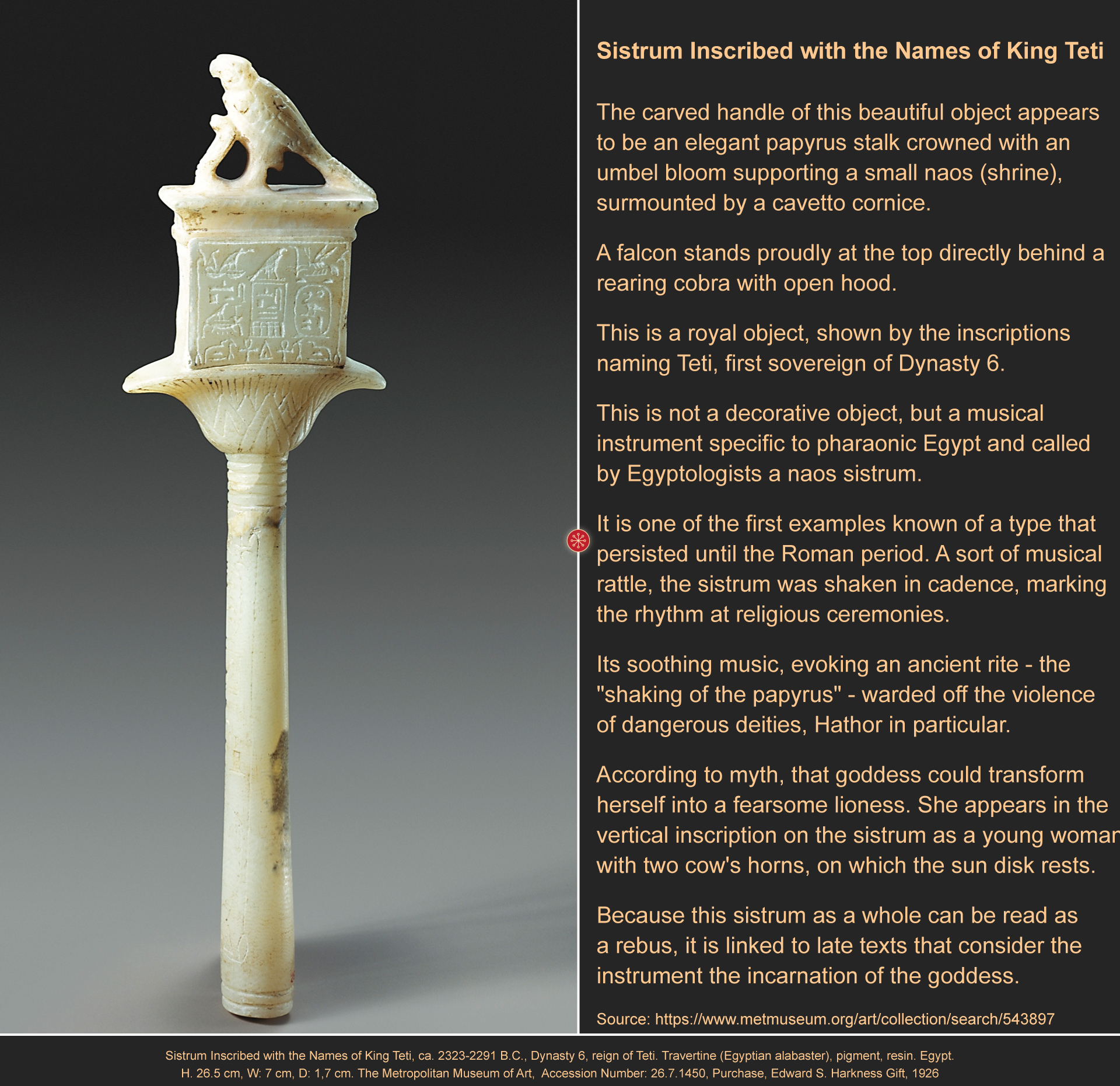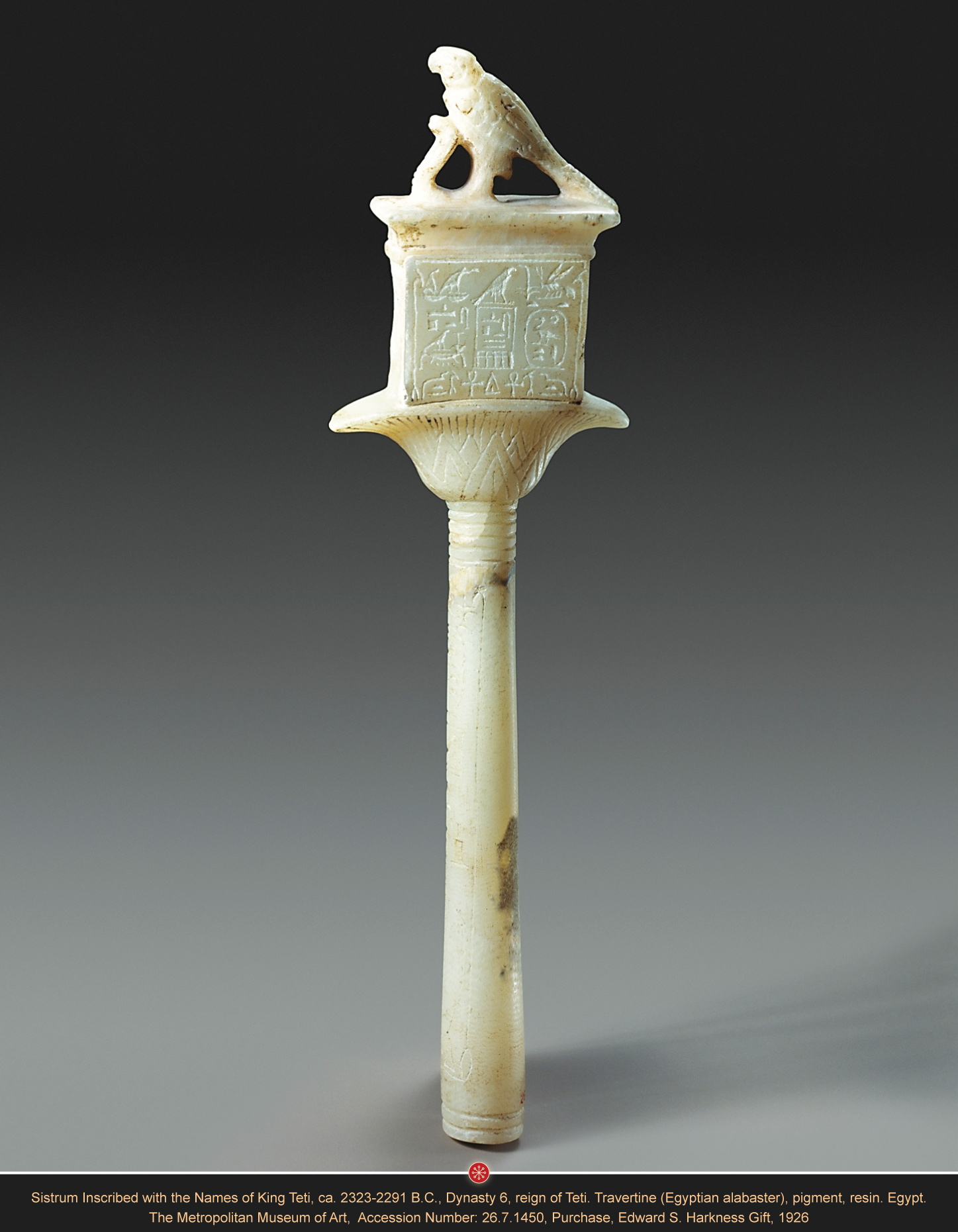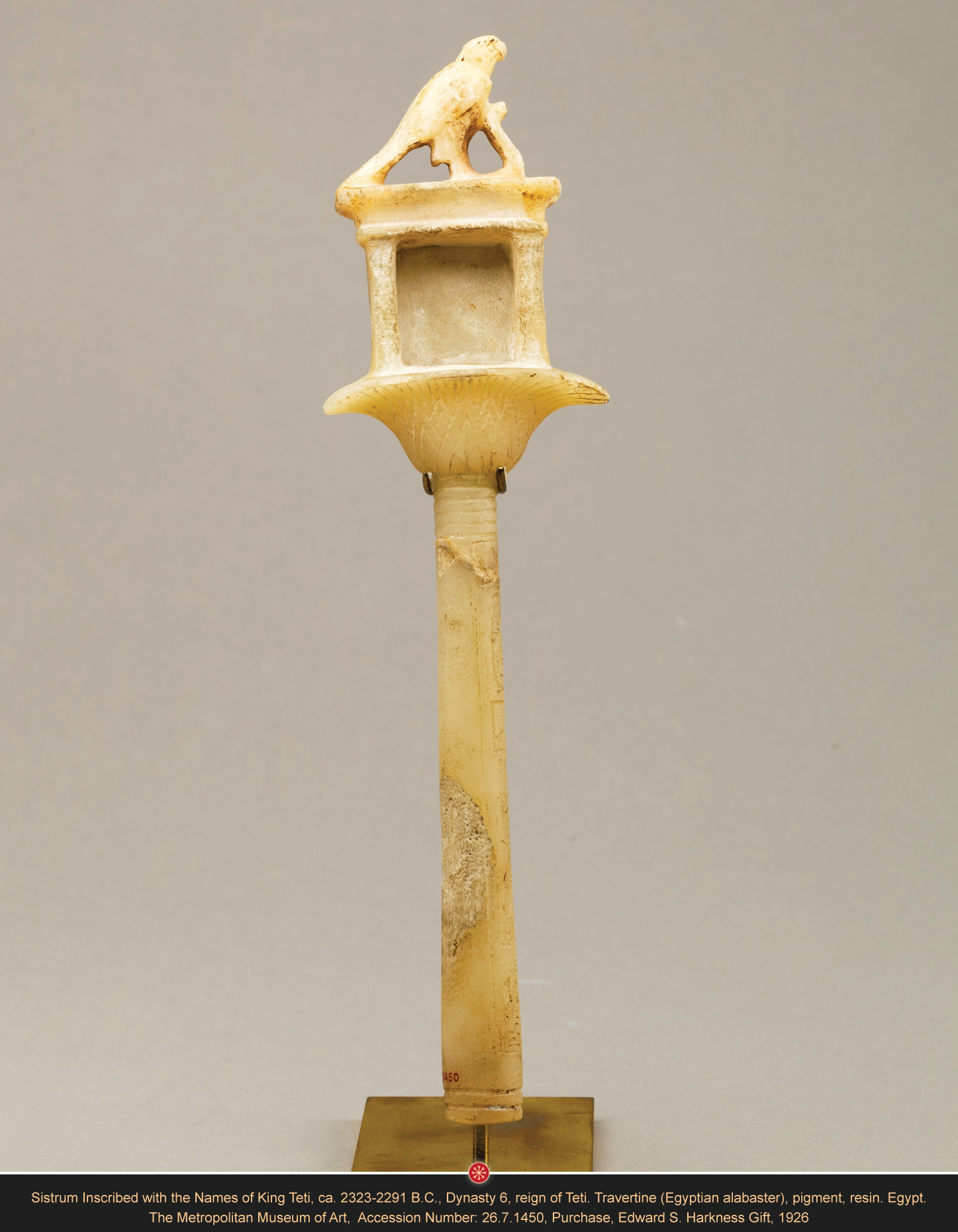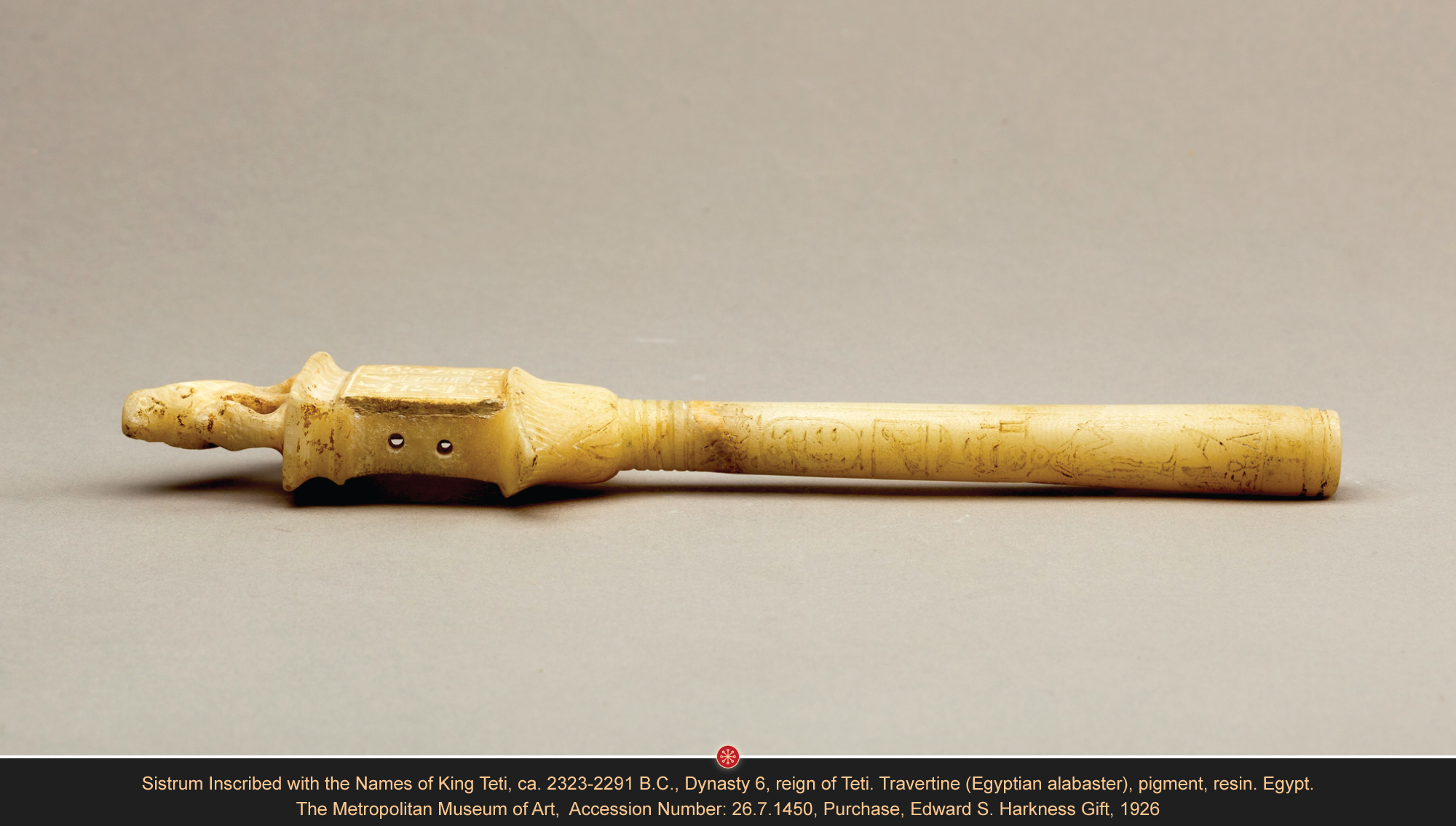This sistrum is made of Egyptian alabaster and inscribed with the names of Pharaoh Teti. It is dated around 2.323-2.291 BCE.
The carved handle of this beautiful object appears to be an elegant papyrus stalk crowned with an umbel bloom supporting a small naos (shrine), surmounted by a cavetto cornice. A falcon stands proudly at the top directly behind a rearing cobra with open hood.
This is a royal object, shown by the inscriptions naming Teti, first sovereign of Dynasty 6. It is not a decorative object, but a musical instrument specific to pharaonic Egypt and called by Egyptologists a “Naos Sistrum.”
This sistrum is one of the first examples known of a type that persisted until the Roman period. A sort of musical rattle, the sistrum was shaken in cadence, marking the rhythm at religious ceremonies. Its soothing music, evoking an ancient rite – the “shaking of the papyrus” – warded off the violence of dangerous deities, Hathor in particular.
According to myth, Hathor could transform herself into a fearsome lioness. She appears in the vertical inscription on the sistrum as a young woman with two cow’s horns, on which the sun disk rests.
Because this sistrum as a whole can be read as a rebus, it is linked to late texts that consider the
instrument an incarnation of the goddess.
Ca. 2.323-2.291 B.C., Dynasty 6, reign of Teti. Travertine (Egyptian alabaster), pigment, resin. Egypt.
H. 26.5 cm, W: 7 cm, D: 1,7 cm. The Metropolitan Museum of Art, Accession Number: 26.7.1450
Source: https://www.metmuseum.org/art/collection/search/543897

Ca. 2323-2291 B.C., Dynasty 6, reign of Teti. Travertine (Egyptian alabaster), pigment, resin. Egypt.
H. 26.5 cm, W: 7 cm, D: 1,7 cm. The Metropolitan Museum of Art, Accession Number: 26.7.1450



It’s easy to support me:
Buy me a coffee: https://www.paypal.com/paypalme/kirstendzwiza
Join my patreon community here: https://www.patreon.com/ancientmagic
Recurring donations on liberapay: https://en.liberapay.com/Kirsten_Dzwiza
